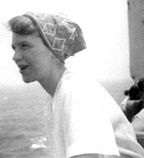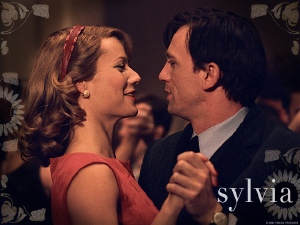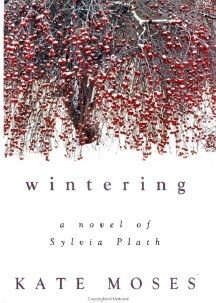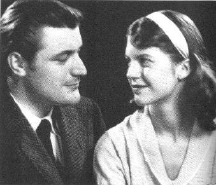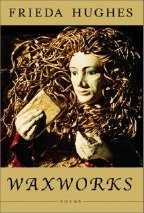Sylvia Plath in the Twenty-First Century
The Agony Column for April 13, 2004
Commentary by Serena Trowbridge
These lines eerily echoes her mother’s poem Lady Lazarus:
There is a curious intertextuality in the poetry and myths surrounding Plath and her family. Ted Hughes even warned his children of the interest their mother’s death would cause, in a poem, The Dogs are Eating Your Mother in the revelatory Birthday Letters: I went to see the film and was uncomfortably aware of those lines; but I’m glad I went anyway. The film is the story of Plath and Hughes’ relationship, from when they met in Cambridge until Sylvia’s death in 1962. The press has given it differing reviews, but it was a reasonably balanced picture, not apportioning blame or criticising too much. The views that Hughes gave voice to in Birthday Letters were more or less absent though and I felt that Hughes was given a rather more unrelenting role in the relationship. I was also concerned by the general lack of interest Sylvia appeared to show towards her children in the film, which anyone reading You’re or Morning Song would instantly know to be untrue. The visual representations in the film were uncannily like the photos of Sylvia, Ted and Assia, and the landscapes and the bleakness of the winter in which Sylvia died are haunting. There is a lot about poetry in this film – unusually; the recent film Iris barely considered the author’s work at all, but here the characters talk about their writing and about poetry in general quite a lot, and most of the time it is both convincing and interesting. However there are no quotations from either Hughes’ or Plath’s poems due to the restrictions of the estate of the poets.
Kate Moses book Wintering will further feed the minds and imaginations of those who like to get under the skin and into the shoes of the writers they love. She looks closely at the psyche of Plath in a novel based on the poems in Ariel, Plath’s most famous collection, published by Hughes after her death. It concentrates on the period after the collapse of her marriage to Hughes, and looks at a young mother struggling with depression and the difficulties of writing whilst looking after two small children.
Theories seem to collect around Plath, just as they have around other beautiful and interesting high-profile women who have died young, including Princess Diana and Marilyn Monroe. These include that Ted Hughes murdered her – directly and deliberately, or indirectly with his infidelity. In fact Plath was appropriated by feminists in the Sixties and Seventies, as an example of what could happen to a woman’s creative and productive side if she married and had children. Since her poems tend to have a female/feminine slant and fitted in with what angry feminists had to say at that time, her life was therefore also used as a metaphor for the evil that men could do. Hughes was reviled and blamed entirely for her death in some circles. I have to say that this theory has by now been largely discounted. This is partly because feminism has moved on and no longer relies so much on scapegoats and examples, but also because it is easy to see that, in marrying and having children, Plath was doing what she wanted and what, at least for a while, made her happiest. Hughes, however, kept his silence until 1998 when he published his own version of events, in Birthday Letters, with a cover designed by Frieda, an artist and poet in her own right.
His poetry seems magical, concentrating on and evoking dark, mysterious, powerful forces in the world and examining what we don’t understand rather than what we do. Later in life he turned to the classics, producing his own versions of Tales from Ovid, Alcestis and a number of similar works. Birthday Letters was one of the fastest selling books of poetry of all time, though this may have been related to it’s subject matter. Nonetheless it is as masterful and evocative as all his other work and set the seal on his lifetime’s achievement shortly before he died of colonic cancer. There is a mine of information about Hughes and his work at Earth|Moon: A Ted Hughes Website.
If this has sparked your interest in Plath’s poetry (and we should be concentrating on her writing) then you can listen to recordings of her reading her poems, recorded by the BBC and broadcasters in the US from 1958 to 1962. There is something guttural and haunting about her voice, as though foreshadowing the events of her life, but hearing her read her own poetry is an unmissable experience. I found it slightly spooky to be sitting here in 2004 listening to a poet reading about suicide (Lady Lazarus) forty years after her death. If you’re in for spooky experiences though I would thoroughly recommend you go to the BBC Out Loud Lady Lazarus reading. If you are interested in reading what she says about her poetry then have a look at Johnny Panic and the Bible of Dreams, a collection of her short fiction and non-fiction prose edited and introduced by Ted Hughes. This includes, among many other fascinating pieces, a short piece entitled A Comparison, in which Plath compares the work of the novelist with the work of the poet:
There
are also a number of other excellent on-line resources I would recommend,
including: Anja Beckmann's
Sylvia Plath page,
PlathOnline.com and The
Sylvia Plath Forum. |
